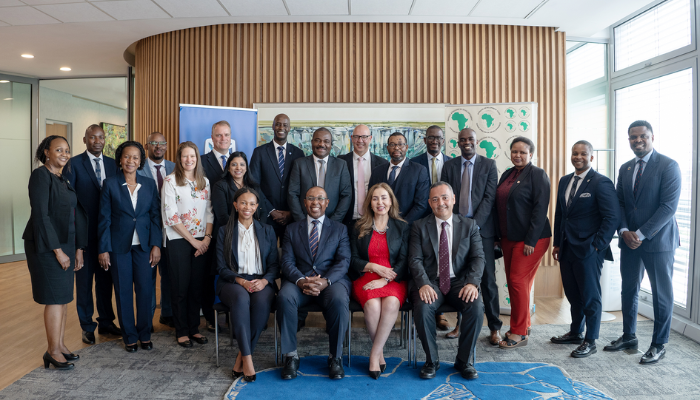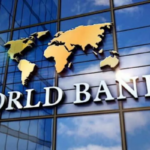The African Development Bank Group (AfDB) and Standard Bank Group have signed a financial agreement to increase funding for small, medium, and micro enterprises (SMMEs) and strengthen trade across Africa. The agreement includes a R3.6 billion social bond investment and a $200 million Risk Participation Agreement (RPA) for Standard Bank of South Africa Limited (SBSA).
The initiative aims to enhance Standard Bank’s lending capacity, enabling more SMMEs to access finance. These businesses play a crucial role in economic growth and job creation in South Africa.
Read also: Korean peacekeepers and UNMISS equip 16 South Sudanese students with agricultural skills
Expanding financial access for SMMEs
The social bond investment focuses on inclusive economic development, particularly for SMMEs with a turnover below R300 million and loan sizes under R40 million. This financing is expected to support up to 4,000 businesses, allowing them to expand, create jobs, and strengthen economic stability.
Kenny Fihla, Deputy Chief Executive Officer of Standard Bank Group and Chief Executive Officer of SBSA, emphasised the importance of this initiative. “This landmark partnership strengthens our ability to support SMMEs, the backbone of South Africa’s economy. With approximately 3.2 million SMMEs accounting for 60% of jobs, ensuring access to finance is crucial. This initiative aligns with our Sustainable Finance Framework and our commitment to financial inclusion.”
Read also: 1,000 Young women gain digital skills in Tanzania through AGCCI programme
Enhancing trade finance across Africa
Alongside the social bond, the $200 million RPA aims to expand trade finance across Africa, with a particular focus on Low-Income Countries and Transition States. The agreement enables local banks to increase lending by sharing risk, addressing trade finance shortages, and promoting intra-African trade.
Leila Mokaddem, Director General for Southern Africa at the African Development Bank, highlighted the broader impact of this collaboration. “This collaboration marks a significant milestone in our long-standing partnership and is a testament to our shared commitment to supporting SMMEs’ growth and enhancing trade finance across Africa. Expanding financial inclusion and trade opportunities empowers businesses to drive economic transformation and regional integration. The Standard Bank Group remains a strategic partner in our shared vision for economic development on the continent.”
Alignment with economic development strategies
The initiative supports the African Development Bank’s Ten-Year Strategy (2024–2033), which prioritises industrialisation, regional integration, and improving quality of life in Africa. It also aligns with Standard Bank’s Sustainable Finance Framework, reinforcing both institutions’ efforts to promote sustainable economic growth.
Ahmed Attout, Director of the Financial Sector Development Department at the African Development Bank, stated the importance of the transaction. “We are proud of this transaction, demonstrating our shared commitment to sustainable financing. By supporting businesses, we create long-term economic opportunities and financial resilience.”
Read also: FG announces strategic collaboration with Google to boost AI and digital innovation
Impact on businesses and communities
The funding agreement will enable SMMEs to overcome financial barriers, expand operations, and contribute to employment generation. By increasing capital availability, this partnership seeks to drive economic development and stability.
Kenny Fihla reaffirmed the significance of the collaboration. “By providing much-needed capital, we are helping enterprises overcome challenges and thrive. This partnership illustrates the power of collaboration in driving meaningful economic and social change in Africa.”
The financial agreement between the African Development Bank and Standard Bank represents a step towards greater financial inclusion and trade expansion. By addressing funding gaps, it provides businesses with the resources needed to grow and contribute to Africa’s economic development.










